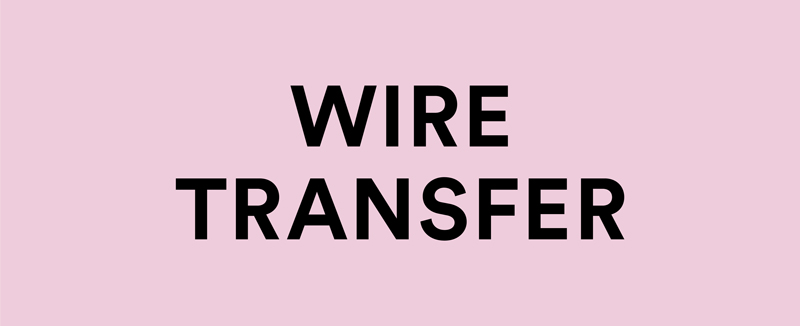Articles with tag:
Relationships
(9 results)
Compassion: Between Tenderness and Cruelty
There are so many things to say about compassion that one could fill a book or an encyclopedia. A partial list of areas to cover would include: commiseration, piety, love, understanding, sharing, empathy, sympathy, antipathy, intropathy, bliss and clemency. Compassion is what we feel reading about Hector and his wife Andromache, or the dream about the twenty geese that Penelope tells the disguised ‘beggar’ who is really her husband, Odysseus. It is the condition Aristotle refers to in his ‘Poetics’ when he uses the term ‘catharsis’. It is also the virtue embodied by Aeneas as he slings his old father Anchises and his son Ascanius to on his back and carries them out of burning Troy to safety. Or again, when Eros disobeys his mother and falls in love with Psyche. And so on, throughout history, examples of compassion abound, in Romantic literature and then on to the scandal caused by the controversy between Nietzsche and Wagner regarding Schopenhauer. Compassion does not necessarily have the same connotations today as it did in the past. We are not even sure whether the words we use to describe the sentiment correspond to what each of us feels today. The term ‘compassion’ has...
Arabs, Israel and Terrorism
Given the tensions in the Mediterranean region, how do you see the issue of the relationship between countries on the northern Mediterranean rim, such as Italy, and those with an Islamic culture on the southern rim, such as Libya, Egypt, Tunisia, and Algeria? What do you think we should do, think, or write in order to avoid exacerbating these tensions as we have done in the past? Finally, do you think there are some areas where our knowledge is incomplete in this regard? Knowledge is always a good thing, but our knowledge of the Arab world - objectively speaking - is very limited. This limited knowledge is partly our fault and partly theirs, because it is undeniable that very little good news has come out of the Arab world, or Islam in general, for centuries. They use technology but have not contributed to the digital revolution, they are Marxists without having contributed to a renewal of the ideology. They are, in short, on the sidelines of both western civilization and the communist world. My view is quite pessimistic. I wouldn’t trust any of the leaders right now: neither Mubarak, nor Khomeini, nor Gaddafi. They are all unreliable, ready to jump onto any bandwagon out of...
Why Africa Why
Why Africa Why. And who am I to say? Why Africa Why? All I remember is a river I did not sail up, in search of who, Kurz, Marlon, who? And I do remember a few Masai, one in particular, riding with me a road in Kenya, and a lake with a European name it’s time to shed, perhaps, and a desert and dunes and things that are wider even than Africa, amazing as it sounds. I don’t remember the Namibian desert and its dry mysteries of a distant hut without running water, because I’ve never visited it. And a lively Ivory Coast that runs only in my imagination along with a singing Senegal and a Congo I’ve read about in some brilliant short stories and Zan-zi-baaar and Mad-ag-as-caaar, being the most important scar, like the one on the face of African princes, from where? I don’t remember now. Malawi better than Malindi. Two people having an argument and you know the one who laughs and walks away first is the one who won it. Yes, booming voice and smile, Africa. People lining the side roads of the little Africa I’ve seen, that dances away in my mind with the Africa I’ve read and heard and seen only on a screen and imagined and dreamt. For I know very little about this Africa, what do I...
Why Africa? Changing the Narrative of the World
Why Africa? For many years lettera27 has been dedicated to exploring various issues and debates around the African continent and with this new editorial column we would like to open a dialogue with cultural protagonists who deal with Africa. This will be the place to express opinions, tell their stories, stimulate the critical debate and suggest ideas to subvert multiple stereotypes surrounding this immense continent. With this new column we would like to open new perspectives: geographical, cultural, sociological. We would like the column to be a stimulus to learn, re-think, be inspired and share knowledge. For the opening piece we asked our partners, intellectuals and like-minded cultural protagonists from all over the world to answer one key question, which also happens to be the name of the column: "Why Africa?". We left the question deliberately open, inviting each of the contributors to give us their perspective on this topic from their own context. This first piece is a collection of some of the answers we received, which aims to open the conversation, pose more questions and hopefully find new answers. Elena Korzhenevich, lettera27 Here the column's introduction...
Why Africa? Companions of Longitude
Why Africa? For many years lettera27 has been dedicated to exploring various issues and debates around the African continent and with this new editorial column we would like to open a dialogue with cultural protagonists who deal with Africa. This will be the place to express opinions, tell their stories, stimulate the critical debate and suggest ideas to subvert multiple stereotypes surrounding this immense continent. With this new column we would like to open new perspectives: geographical, cultural, sociological. We would like the column to be a stimulus to learn, re-think, be inspired and share knowledge. For the opening piece we asked our partners, intellectuals and like-minded cultural protagonists from all over the world to answer one key question, which also happens to be the name of the column: "Why Africa?". We left the question deliberately open, inviting each of the contributors to give us their perspective on this topic from their own context. This first piece is a collection of some of the answers we received, which aims to open the conversation, pose more questions and hopefully find new answers. Elena Korzhenevich, lettera27 Here the column's introduction...
My Plate’s Empty: Italian Food and Melancholy
We had spent a week in the company of ghosts. Nobody cared about the Balkan wars any longer, except perhaps a pathetic huddle of war veterans trying to speculate on the glories of their war. In Mostar, Sarajevo, Banja Luka and the smaller Bosnian cities, all that remained were the facades of the houses pock marked by artillery fire. Most people want to forget the past and look to the future. The food was generally bad, at times truly terrible. Once I mistakenly ordered a plate of Findus ‘sofficini’ in a bar in Pale, thinking I could read the cyrillic alphabet on the strength of my schoolboy knowledge of Ancient Greek. Leaving Bosnia behind and venturing towards Belgrade, we thought of our destination as an oasis, if not of civilization at least of good restaurants and attractive cafés. The cafés were indeed inviting, with their outdoor tables urging you to enjoy the open air life. Dining out was another matter, as the level of the restaurants had not improved greatly. That was when we remembered a friend’s recommendation. “If you have time, go and say hello to Dag”. One evening we decided to act on our friend’s advice and, not without difficulty, finally found the Italian...
The mother of all dances
When I discovered the question, I felt tempted to parody this American actor in this ad for some coffee and to answer: what else? I am the son of Lydia and Simon, two bassa heroes. I am the result of those two beings from a people who fought forcefully for their freedom; two children of Africa. So, what else? What else than that land of shadows and ghosts waiting to be revealed? What else than those millions of stories waiting to be told? Those stories I would read for my grandfather without really understanding, but captured by the mystery of books that could contain a whole world within their pages. Wars, marvels, people, love, hatred, all translated in the subtle magic of words. Conrad did not know to which extend he was right when he called this continent the heart of darkness. He did not know what darkness was in reality and found the right words out of a misunderstanding. What do we say when we say Europe or Africa? People are always convinced to say something when they say “Africa”, which I admire, because I personally still don’t know what is Africa. I say Africa knowing that if we were looking for a definition that would perfectly define the complexity of the...
Peter Handke: The Essay Writer
In recent years, critical attention towards the Austrian novelist, playwright and political activist of Slovenian origin, Peter Handke, has focused more on his activism than on his books. In particular, he sparked controversy when he spoke out in support of the Serbian regime, during the sanguinary civil war in former Yugoslavia, and of its leader Slobodan Milošević, both during his trial in the Hague and at his funeral. Many of his most important works are out of print and there are fewer and fewer reprints scheduled, though there may be some change in the air. And yet, his work continues to be translated. Fortunately, this shows that Peter Handke still enjoys a worldwide readership despite the polemics. Donata Wenders, Peter Handke, Chaville 2009 After receiving such prestigious awards as the Kafka prize in 2008, and the Ibsen prize in 2014, Handke’s return to the public eye inevitably stirred up the controversy. Perhaps it is easier to attack Handke for his views than to analyze and comprehend the full range of motivations the writer has given for his opinions. Admittedly, his unquestioning espousal of Milošević’s doctrines is hard to digest, in particular by today’s...
What a book is for me
For once let’s not talk about books as objects. At least not today. The rhetoric of recto and verso, the unbearable lightness of its being, the fragrance and roughness of its paper, the wrapping of its cover, that reveals something, but not too much and not immediately. We could talk, for instance, about how each of us might imagine a book that blends advanced technology with the perfection of a ready-made object. Perhaps, one day, instead of pages sitting on an individual screen of an individual tablet, there will be a screen on all the pages of an individual book. Why not? Research and tests on the technology of materials will have made it possible to transmit digital information via paper fibers. The other day I sat and ruminated for hours, while traveling from train to plane to train again, about this unhealthy idea of a book in the future. It would be white, I thought (or a changing color), of average size, portable, page-turnable, surfable, with screen-pages made of a special make of paper that turns on and off. The best of digital combined with the best of analogical. I’d really much rather talk about books as stories though. If we do talk about stories, I...









 Since 2011
Since 2011 

